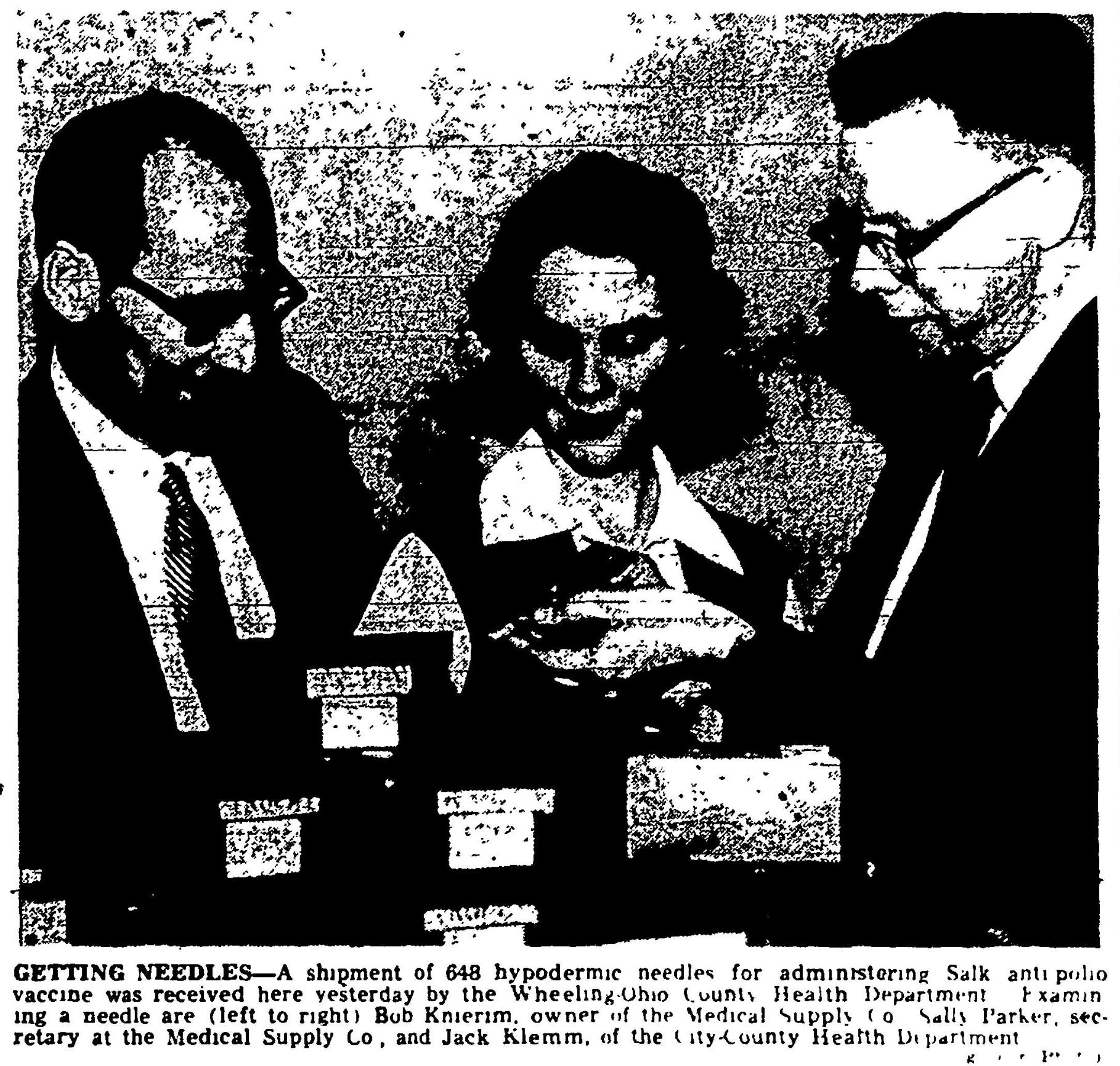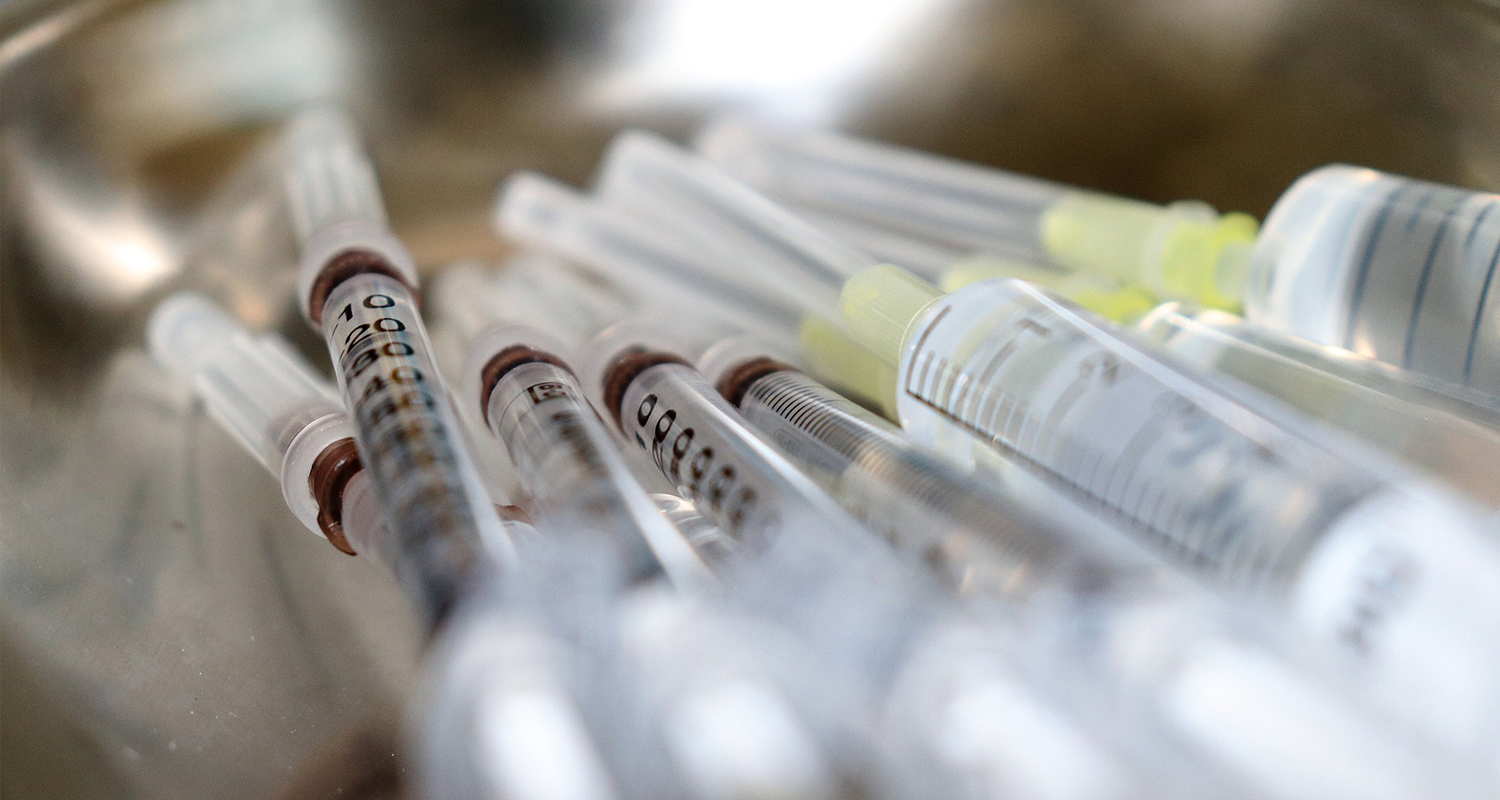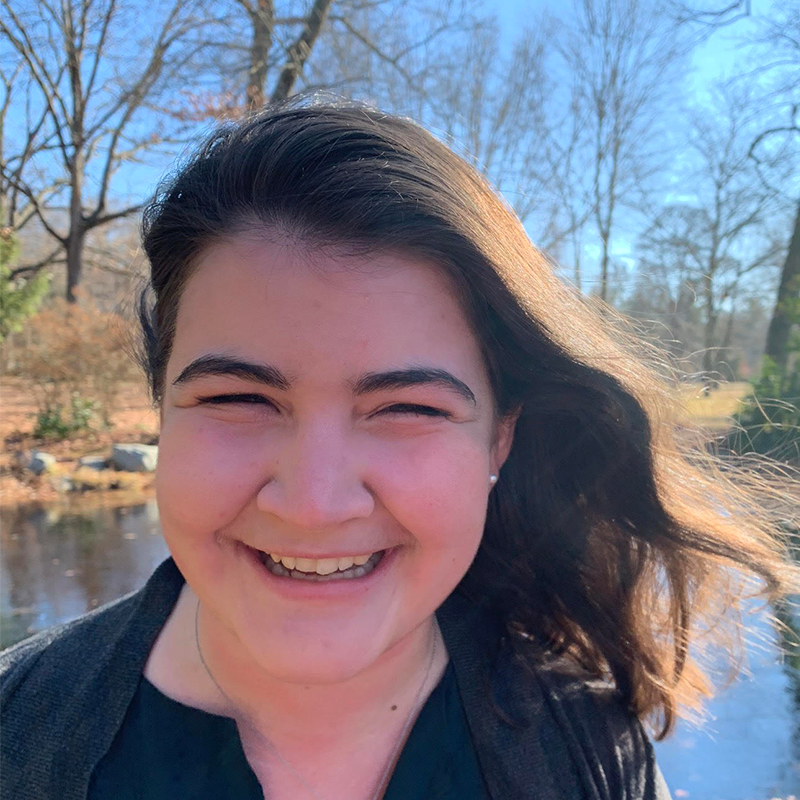Imagine all of the church and school bells ringing and all of the factories and trains whistling in Wheeling all at the same time. Incredibly loud right?
That cacophony of noise lasted two long minutes at noon on what might seem like a random Thursday on December 27, 1934. But it wasn’t entirely random. Wheeling was celebrating the 112th anniversary of Louis Pasteur’s birthday—the scientist who is credited with creating the first modern vaccine.
The “Father of Preventive Medicine”
Louis Pasteur was a scientist of many achievements including confirming and popularizing germ theory and inventing the process of pasteurization. However, what he is most remembered for is his development of vaccines.
While his first vaccine in 1879 wasn’t for humans—it was for chickens—it paved the way for the development and understanding of other vaccines and was largely considered the “birth of immunology.” In succeeding years, Pasteur developed vaccines for anthrax and rabies, the latter of which would be for humans.1
The history of immunology extends further back than Pasteur. There is evidence of the practice of inoculation or “variolation”—the intentional infecting of someone with material from the diseased, such as smallpox scabs with the hopes of immunity—as far back as the middle of the 16th century, potentially earlier.2 Pasteur is the first person credited with bringing immunology into the laboratory and creating a live attenuated vaccine, meaning that the infectious agent is less virulent.3 Even though Pasteur didn’t discover the general concept of immunology, his groundbreaking developments in understanding bacteria, viruses, and immunology led to future vaccines against some of the world’s deadliest diseases.

Pasteur and Wheeling
Celebrating Pasteur—a Frenchman who probably never heard of Wheeling during his lifetime—may seem a little random. However, Wheeling had suffered enough deadly disease outbreaks, especially cholera, over the past century that the scientist’s vaccine discovery had been a cause for celebration.
For example, during Wheeling’s first cholera crisis in 1832-33, the mortality rate was between 50 and 60 percent, with dozens of people dying a day.4 Periodically, cholera would spring back up in Wheeling, the suffering haunting Wheeling residents for years. Later that century, Jamie Ferrán created the first human cholera vaccine; he had studied Pasteur’s work. The invention and development of the modern vaccine has changed the field of public health, drastically reducing mortality rates and making some of the scariest diseases (for the most part), like cholera, seem like things of the past in some countries.

While covering the 1934 Wheeling celebration, the Wheeling Intelligencer referred to Pasteur as “one of the greatest benefactors to humanity in history.”5 In addition to the auditory tribute, there was a lunch held at the fashionable Fort Henry Club with business men, professionals, and city and county officials in attendance. After the event, President Franklin D. Roosevelt and the field director of the American Public Health Association both sent telegrams “congratulating Wheeling on its fine spirit in commemorating Pasteur’s birth anniversary.”6

What remains odd is that this appears to only be a one-time event. Historical evidence indicates that Wheeling only celebrated Pasteur’s birthday in 1934; for all the hoopla, it wasn’t an annual event. It is unclear why it was celebrated in 1934—Pasteur had been dead for almost forty years and the 112th anniversary is not an often-celebrated milestone. There is a possibility that 1934 was an important year because it was the 50th anniversary of Pasteur’s development of the rabies vaccine, which was his first human vaccine.7
Pasteur’s Legacy: COVID-19 Vaccine
In few weeks, the first FDA-approved vaccination for COVID-19 has started being administered in the United States. Granted, it will be a while before most of the general population receives it—the limited early supply will be strategically given to those in the most immediate need, such as medical personnel. Even though Louis Pasteur lived over a century ago, in a country almost 4,000 miles away, his vaccine foundations continue to profoundly impact the world—including our small city of Wheeling. Wheeling Hospital picked up its first stock of Pfizer vaccines on Tuesday, December 15th to begin inoculating health care workers.8
While the most recent vaccine probably won’t result in Wheeling Mayor Glenn Elliott calling for all the bells and whistles to sound the celebration, the COVID-19 vaccine still rings a glimmer of hope.
• Emma Wiley, originally from Falls Church, Virginia, was a former AmeriCorps member with Wheeling Heritage. Emma has a B.A. in history from Vassar College and is passionate about connecting communities, history, and social justice.
References
1 “Louis Pasteur and the Development of the Attenuated Vaccine,” VBI Vaccines, November 23, 2016, accessed December 17, 2020, https://www.vbivaccines.com/wire/louis-pasteur-attenuated-vaccine/#:~:text=In%201881%2C%20he%20helped%20develop,it%20from%20their%20spinal%20cords.
2 Arthur Boylston, “The origins of inoculation,” Journal of the Royal Society of Medicine vol. 105,7 (2012): 309-13. https://www.ncbi.nlm.nih.gov/pmc/articles/PMC3407399/
3 “Louis Pasteur and the Development of the Attenuated Vaccine,” VBI Vaccines, November 23, 2016, accessed December 17, 2020, https://www.vbivaccines.com/wire/louis-pasteur-attenuated-vaccine/#:~:text=In%201881%2C%20he%20helped%20develop,it%20from%20their%20spinal%20cords
4 William Hal Gorby, “Wheeling in the Time of Cholera,” Upper Ohio Valley Historical Review, Vol. 41, No. 2, (Spring 2020): 10.
5 “Louis Pasteur Dinner Held,” Wheeling Intelligencer, December 28, 1934, p. 20 http://ohiocountywv.advantage-preservation.com/viewer/?k=%22louis%20pasteur%22&i=f&d=01011852-12312020&m=between&ord=k1&fn=wheeling_intelligencer_usa_west_virginia_wheeling_19341228_english_20&df=21&dt=30
6 “Louis Pasteur Dinner Held,” Wheeling Intelligencer, December 28, 1934, p. 20 http://ohiocountywv.advantage-preservation.com/viewer/?k=%22louis%20pasteur%22&i=f&d=01011852-12312020&m=between&ord=k1&fn=wheeling_intelligencer_usa_west_virginia_wheeling_19341228_english_20&df=21&dt=30
7 “Louis Pasteur and the Development of the Attenuated Vaccine,” VBI Vaccines, November 23, 2016, accessed December 17, 2020.
https://www.vbivaccines.com/wire/louis-pasteur-attenuated-vaccine/#:~:text=In%201881%2C%20he%20helped%20develop,it%20from%20their%20spinal%20cords
“Historic Dates and Events Related to Vaccines and Immunization,” Immunization Action Coalition, accessed December 18, 2020, https://www.immunize.org/timeline/
8 “Wheeling Hospital Ready to Administer COVID Vaccine To Front-Line Employees,” Wheeling Hospital, December 14, 2020, accessed December 17, 2020, https://wheelinghospital.org/about/news/newsdet.aspx?n=1465



